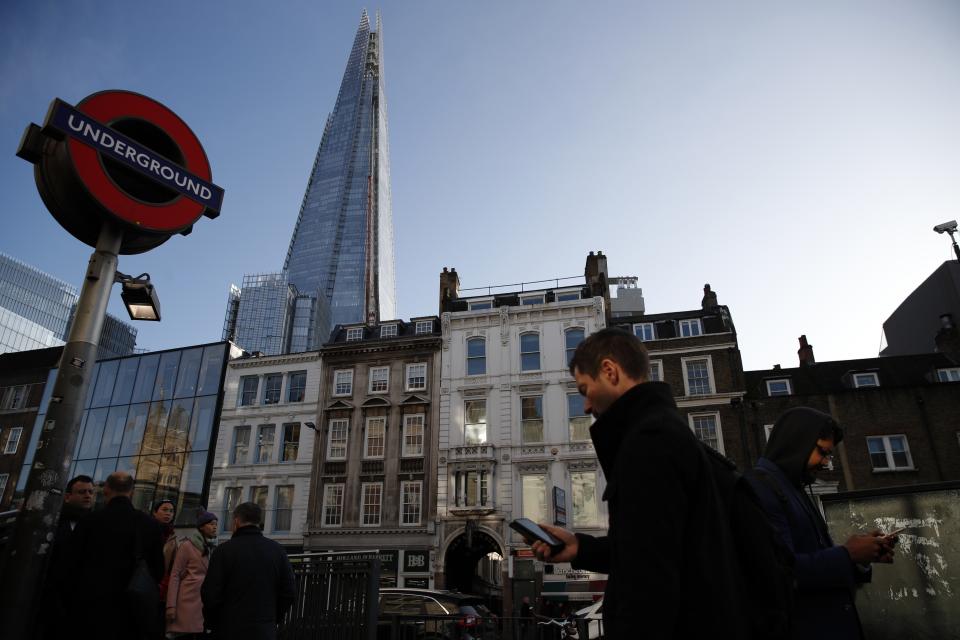UK economy flatlined in January before coronavirus swept Europe

The UK economy flatlined in January, suggesting that the bounce in growth seen following the general election was short-lived.
Growth in the month compared to December came in at 0%, below analyst forecasts of 0.2%, according to the Office for National Statistics (ONS).
The data, which does not yet reflect the potential economic impact of coronavirus, will raise fears about the health of the UK economy as Europe contends with a sweeping outbreak of the virus.
Growth in the three months to January 2020 also came in at 0%, with the country’s hugely important services sector — which includes finance, law, engineering, and consulting — stagnating in the period.
The economy grew by just 0.6% in January compared to the same month in 2019, far below the 0.9% that analysts had expected.
Read more: UK services sector growth slows as coronavirus hits sales
The data indicates that the so-called “Boris bounce” following December’s emphatic election result has failed to take hold, and puts paid to the signs of an upswing seen from various economic indicators.
Despite an overall 0.2% upswing in manufacturing output compared to December, construction output declined sharply in the first month of the year. There was also a 0.1% decline in industrial production.
“The economy continued to show no growth overall in the latest three months. Growth in construction, driven by housebuilding, offset yet another decline in manufacturing, particularly the drinks, cars and machinery industries,” said Rob Kent-Smith of the ONS.
“The dominant services sector also showed no growth in the latest three months with falls in retail and telecoms balanced by strength in rentals, employment and education.”
The economic fallout from coronavirus, which began disrupting global supply chains in February, is likely to be reflected in February’s official GDP data, which will be released next month.
“The post-election rebound in activity failed to materialise in January,” said Ian Stewart, the chief economist at Deloitte.
Read more: Bank of England cuts interest rate to 0.25% in coronavirus response
“It’s a disappointing start to the year ahead of the inevitable knock to growth from coronavirus.”
Though purchasing managers’ index data suggests that the country’s manufacturing sector expanded in February, there were signs of “rapidly emerging” supply chain disruptions related to the spread of the virus.
Growth in the services sector, meanwhile, slowed in February, when the virus outbreak began to affect sales to clients in overseas markets.
The Bank of England on Wednesday introduced a series of emergency measures to curb the economic impact on the UK.
Investors are widely expecting the central bank’s manoeuvres to coincide with the announcement of a government spending package in Wednesday’s UK budget.
Watch the latest videos from Yahoo UK

 Yahoo Finance
Yahoo Finance 
